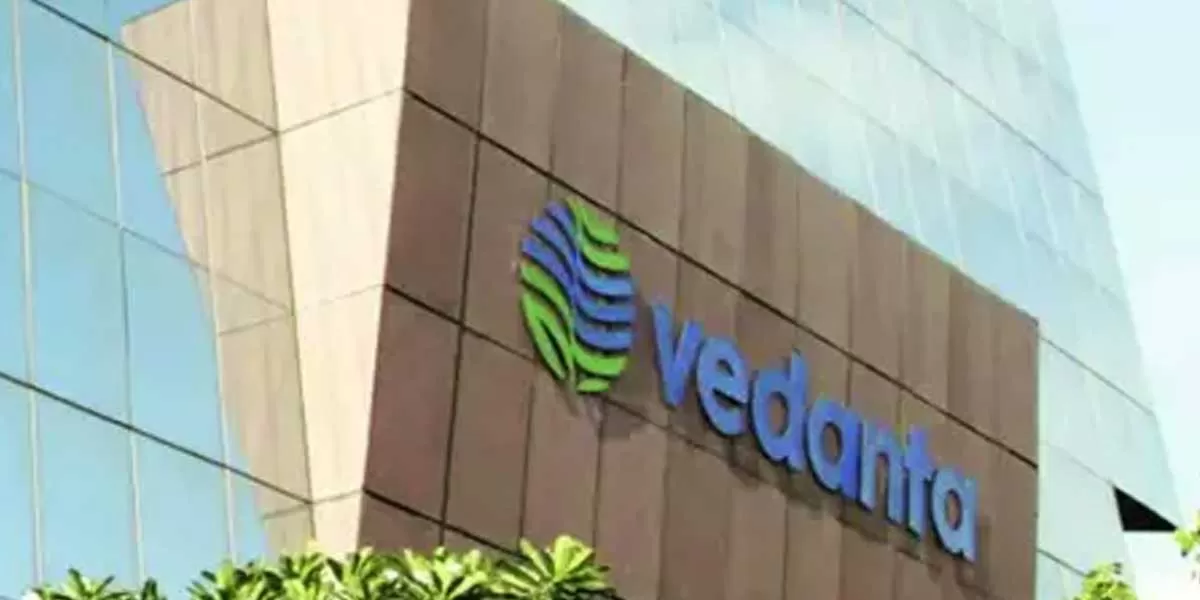On International Day of Forests, Vedanta Aluminium, India?s largest producer of aluminium, announced the extensive efforts undertaken by the company to preserve the ecology in and around its operations in Chhattisgarh and Odisha. The company is committed to conserving and promoting the biological diversity of ecosystems as part of its strategy. Vedanta Aluminium completed afforestation on five reclaimed ash dykes, which were closed after reaching full capacity, at its BALCO operations - India?s iconic aluminium producer located in Korba district of Chhattisgarh. Spanning an area of more than 150 hectares, the initiative demonstrates the scope for sustainable reclamation of areas that were previously not under forest cover, through the plantation of almost two lakh saplings.
Fly ash is a high-volume, low-effect byproduct generated in the production of thermal power. Consequently, ash storage areas can be repurposed for afforestation, while fly ash itself is utilised in various circular economy avenues. As part of the reclamation process, the ash dykes undergo several stages of preparation which involve soil covering, stabilization, landscaping to develop a forest ecosystem, plantation of indigenous tree species, and continuous monitoring. These efforts have resulted in the area now being home to several native varieties of trees, such as Karanj, Sheesham, Neem, Amsol, and Gulmohar, planted by the company, thus ensuring thriving biodiversity.
In Jharsuguda, Odisha, home to the company?s mega aluminium plant, Vedanta Aluminium has undertaken the plantation of vulnerable tree species such as Chloroxylon swietenia in the district. Moreover, it has initiated extensive afforestation efforts, based on the unique Miyawaki method, for the first time ever in the vicinity of its Jamkhani coal mines in Sundargarh district, Odisha. The resultant plantation is self-sustaining in nature with over 8000 plants, including several fruit-bearing species. Through these initiatives, the company is working towards achieving SDGs (Sustainable Development Goal) 13 ? Climate Action and 15 - Life on Land.
Vedanta Aluminium has implemented comprehensive Biodiversity Management Plans (BMP) across its operations to bolster its ecological efforts. The BMPs are roadmaps for conserving and enhancing biodiversity near the company?s plants. Comprehensive biodiversity conservation studies have also been conducted across all sites with action plans to achieve Net Positive Impact (NPI) on biodiversity by 2030. It has collaborated with ERM India, a reputed environmental consulting firm, to enhance its Biodiversity Management Plan (BMP).
Speaking about the significance of the initiative, John Slaven, CEO, Vedanta Aluminium, said ?At Vedanta Aluminium, our sustainability efforts go well beyond just improving the environment; they encompass a definitive vision for a sustainable planet. We particularly recognize the critical role of biodiversity conservation in responsible business operations, and therefore aim for environmentally conscious practices, in pursuit of the preservation of the planet for coming generations. These encompass efforts both within our plant premises and beyond, ensuring the wellbeing of the varied ecosystems we are a part of.?
Observing International Day of Forests, the company undertook several initiatives to generate greater awareness and action among its employees and community members to preserve their local biodiversity. These included partnering with the DFOs (Divisional Forest Officers) at Jharsuguda, Odisha to organize awareness sessions on the theme of ?Forests and Innovation: New Solutions for a Better World? for school students.
At Korba, BALCO has also set up fruit orchards of native fruit-bearing trees at its township, which presently have around 200 fruit saplings, including tamarind, mango, guava, custard apple and jamun. Under the company?s Mor Jal, Mor Maati initiative, the company has also set up 11 mango orchards in nearby communities with 2300 fruit saplings. The Vedanta Agriculture Resource Centre provides the technical know-how to grow fast-growing, termite-resistant fruit trees to marginalised farmers, who in turn tend to them on their land. In addition, an extensive cleanliness drive was conducted in the nearby verdant forests and waterfalls which have recently seen increased littering by the public.
At Vedanta Aluminium?s world-class alumina refinery in Lanjigarh, Odisha, over 200 fruit tree saplings were distributed among community members. At the same time, at the company?s Mines unit, employees participated in a photography competition aimed at capturing the natural world in their vicinity. These were also accompanied by screenings of nature documentaries and sapling plantation drives with the active participation of local community members.
Vedanta Aluminium, a business of Vedanta Limited, is India?s largest producer of aluminium, manufacturing more than half of India?s aluminium i.e., 2.29 million tonnes in FY23. It is a leader in value-added aluminium products that find critical applications in core industries. Vedanta Aluminium ranks 1st in the S&P Global Corporate Sustainability Assessment 2023 world rankings for the aluminium industry, reflecting its leading sustainable development practices. With its world-class aluminium smelters, alumina refinery and power plants in India, the company fulfils its mission of spurring emerging applications of aluminium as the ?Metal of the Future? for a greener tomorrow.





















